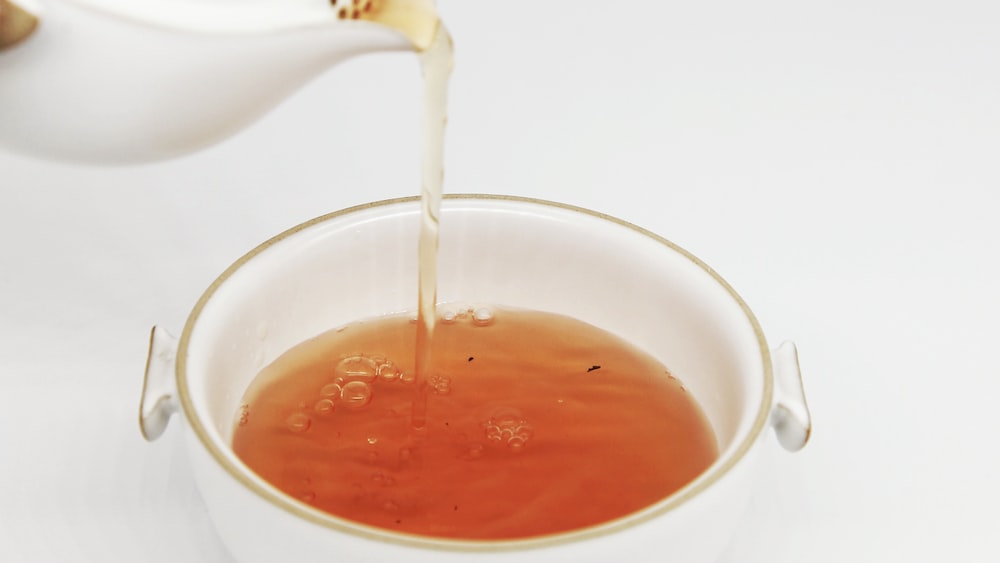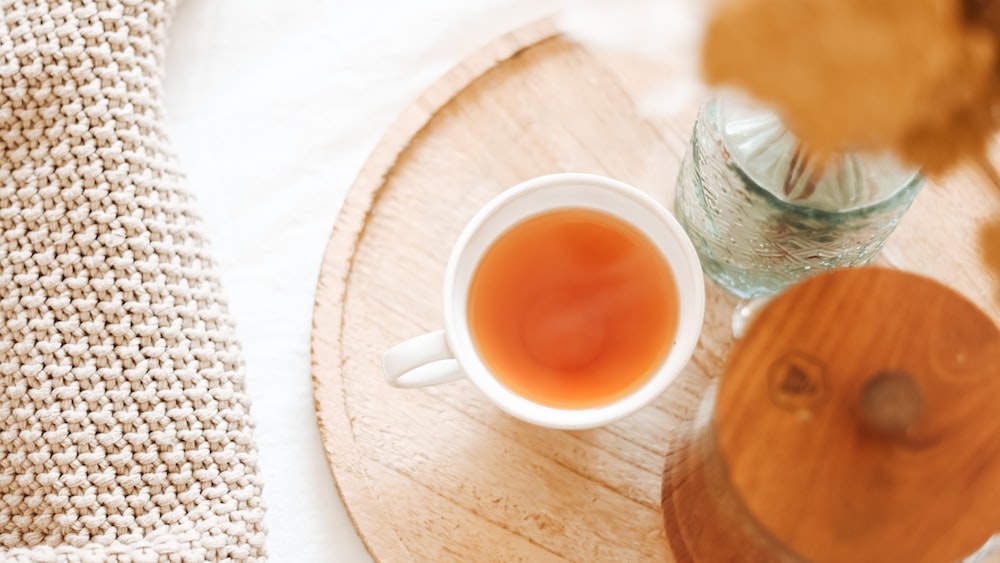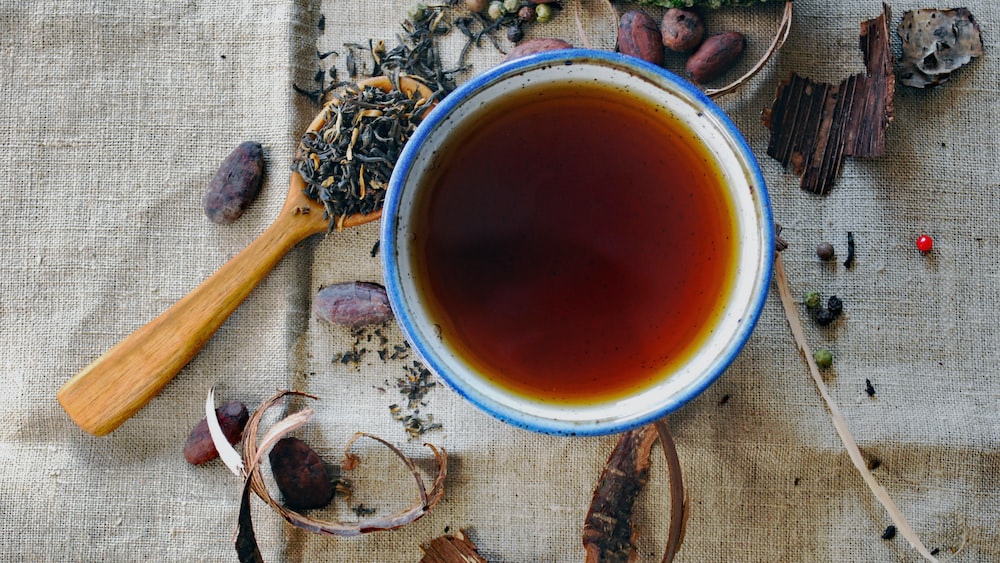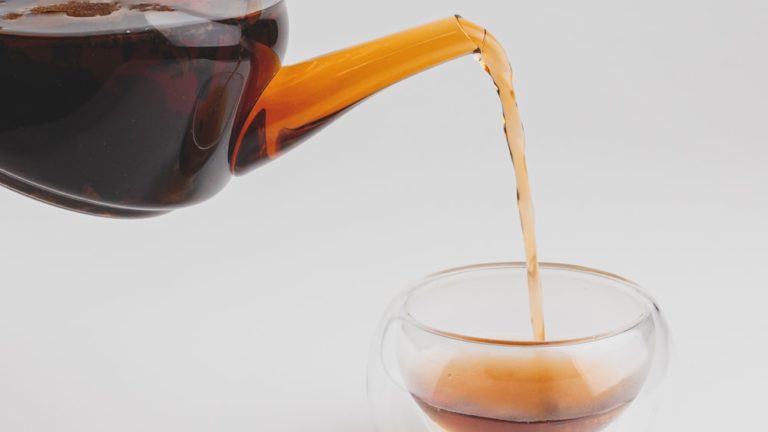Discover The Amazing Benefits: Rooibos Tea Good For Kidneys

Discover The Amazing Benefits: Rooibos Tea Good For Kidneys
See, here’s the tea (beared with me, I couldn’t resist the pun!). Much like a determined coffee lover in a queue at a bustling café, you’re here for substance, while politely ignoring the extraneous macchiato murmurings. What if I told you of a pleasant alternative that’s not enveloped in the smoke billowing out of bean grinders or involved in the tussle of tea leaves? Rooibos tea is a delightful concoction that might just be your hot beverage superhero in the making. Bursting with benefits, it can steal the show, and the spotlight sticks particularly on one sentence – rooibos tea is good for kidneys. Strap in, folks!
While we tend to adopt different approaches to life, one query that always finds a place is, “How do I become a healthier version of myself?” We will likely find ourselves tumbling down the well of wellness information. If that’s your case, allow me to introduce you to the aforementioned red cape tea crusader and share why, when it comes to your kidneys, this could be your cup of tea (metaphorically and literally!).
Now, you may be wondering – “How can a simple tea deliver such potent health perks?” Could this be another exaggerated health fad like the infamous kale invasion of 2014? Have no fear, dear reader, this is no passing trend. Buckle up, because we’re about to embark on a fascinating trip through the world of Rooibos tea.
What is Rooibos Tea?
In the realm of brews, there’s quite a tea-rrific line up (last tea pun, I promise). After much thumb wrestling with the caffeine-fueled giant, green tea, we find ourselves turning to the unsuspecting yet powerful rooibos tea. “What is this charmingly named brew?” – I hear you ask.
Origin and Characteristics of Rooibos Tea
Wildly growing in the Western Cape Province of South Africa, Rooibos tea (medicinal name: Aspalathus linearis), owes its distinctive red hue and delightfully sweet taste to the hills it calls home. The name is no cryptic riddle either – it’s Afrikaans for ‘red bush.’ Its unique character lies in its needle-like leaves which turn red when fermented.
Casting shadows over the limelight often hogged by green tea, rooibos tea enters the stage uniquely caffeine-free and low in tannins, offering a soothing and calming experience even before it hits your tastebuds. Its flavor profile, a dance between naturally sweet caramel notes and nuanced hints of vanilla, functions as the metaphorical cherry on top. Talk about a tea-party in your mug!

Rooibos tea from the Western Cape Province of South Africa is uniquely caffeine-free and low in tannins, offering a soothing and calming experience with its naturally sweet caramel and vanilla flavors.
Nutritional Information of Rooibos Tea
They say you can’t judge a book by its cover, and rooibos tea is no exception to the rule. Beyond its rich red color and mouthwatering taste lies a veritable treasure trove of nutrients.
Bursting with minerals, Rooibos tea aces the nutritive exam by packing calcium, iron, zinc, and so much more in its petite leaves. Not to mention, it stands unrivaled with no-calorie and no-caffeine tags which make it an excellent nighttime drink.
However, the real crown jewel is its assembly of powerful antioxidants, stars of the show, whose actions we’ll dive into just a moment. Now, before you dismiss this as bland science-ese and your eyes start glazing over, remember that these antioxidant comrades are the ones singing soprano in the choir of ‘rooibos tea is so good for kidneys.’
Health Benefits of Rooibos Tea
Among rooibos tea’s platter of health benefits, its kidney benefits steal the show. But besides being a kidney wellness promoter, it wears several other hats. Dig in, folks!
Antioxidant Properties of Rooibos Tea
Now the concept of antioxidants can sometimes be as confusing as a Rubik’s cube. But think of them like Pac-Man from the classic arcade game, chilling in your body, actively seeking those pesky mischief-makers known as free radicals. In simpler terms, they’re your personal health heroes fighting off ugly oxidative stress.
Research has bestowed rooibos tea with the title of ‘antioxidant-rich’, thanks to its arsenal of compounds like aspalathin and nothofagin. These antioxidant soldiers play a pivotal role in reducing inflammation and bolstering your overall health map.
To add to its repertoire, rooibos tea also lays claim to an even more unique antioxidant, quercetin. This plant pigment struts its protective abilities to protect your heart and ward off cancer – two more health-promoting hats for our star brew right there!
Rooibos Tea and Heart Health
When it comes to playing Cupid for heart health and libations, rooibos tea brings a bow and arrow to the match. It dons, yet another hat here, as its antioxidants work hard to optimize blood pressure levels and promote healthy blood circulation.
One study found that individuals with a penchant for rooibos tea had a lesser risk of cardiovascular disease. Thanks to chrysoeriol, a potent antioxidant, rooibos tea helps relax your blood vessels, lowering blood pressure, and ultimately keeping your heart beating to a merry rhythm.
Rooibos Tea and Cancer Risk Reduction
If the possibility of rooibos tea playing a role in thwarting the dreadful ‘C’ word intrigues you, you’d be on the money. Rooibos tea is no slacker when it comes to its cancer-combating crusade.
The anti-cancer activity comes courtesy of its exclusive antioxidant, quercetin, which holds promise in its ability to inhibit the growth of cancer cells. Preliminary animal studies have painted a thrilling picture – rooibos tea may help mitigate the risk of skin and lung cancer. Of course, while these findings paint a hopeful picture, more research on humans is still required. But for now, that’s another feather in the cap (or should I say hat?) for our wholesome rooibos tea.
Rooibos Tea and Type 2 Diabetes
Isn’t it ironic that Type 2 Diabetes, a sweetness hijacking, bitterness inflicting rouge in the body, can be curbed by the sweet, honey-like redness of Rooibos tea? Well, such is the richness of Mother Nature! According to a study published in the Journal of Traditional and Complementary Medicine, the bioactive compounds of Rooibos tea exhibit an anti-diabetic effect.

Rooibos tea is believed to increase insulin production within the body. Much like a magician pulling a rabbit out of the hat, this humble brew mobilizes the existing, idle molecules of insulin into action. The friendliness of rooibos tea towards blood sugar control has also earned it plaudits in the scientific community, marking it as a potential helper for people battling Type 2 Diabetes.
Yet, let’s not conclude by simply painting a rosy picture. While research does suggest that rooibos tea helps manage blood sugar levels, it’s not a stand-alone, omnipotent hero that can single-handedly banish Diabetes. Combining it with a balanced diet, regular exercise, and advice from your faithful health practitioner is the key. Remember, even superman needed a little help from his friends!
Rooibos tea can potentially help manage blood sugar levels in people with Type 2 Diabetes by increasing insulin production within the body.
Rooibos Tea and Kidney Health
Swapping gears now, let’s journey from sugar-drenched landscapes to the pebble-filled terrains of our kidneys. You might be wondering, “Is Rooibos Tea genuinely good for kidneys?” Let’s dig deeper into that.
How Rooibos Tea Benefits the Kidneys
Kidneys are unparalleled workaholics, constantly sieving out waste products from your body. Now, Rooibos tea steps in like a friendly co-worker, helping share this workload. Containing zero caffeine and a low tannin content, it’s less taxing on this hard-working organ.
Rooibos tea serves as a potent detoxifier. It ushers out unwanted substances, whispering them a gentle yet firm goodbye. Plus, its high antioxidant content, credited to the famed ‘Karl R.O.S.’ compound, strengthens the kidneys.
The unique blend of minerals like calcium, potassium and magnesium in Rooibos tea also assists in maintaining electrolyte balance. This tea is indeed the mythical ‘elixir of kidney life’ that we’ve all been searching for!
Rooibos Tea and Kidney Stones
However, while Rooibos tea is like a best friend to your kidneys, it also waves a caution sign to those prone to kidney stones. As it envelopes minerals like calcium, it may contribute to stone formation in some susceptible individuals.
Yet, here’s a twist in the tale – Rooibos tea’s high oxalic acid content can paradoxically act as a stone disruptor, keeping those pesky pebble-like monsters at bay. As always, one must tread the path of balance. It’s quintessential to consult your healthcare provider or kidney specialist before incorporating Rooibos tea into your diet, especially if you have a history of kidney stones. The mantra here is “to sip, but with wisdom”.
Potential Side Effects of Rooibos Tea
Despite its rosy glow, Rooibos tea does throw some shadows. Let’s uncover the potential side effects that this seemingly angelic brew might harbor.
Understanding the Side Effects
While Rooibos tea is a bloom in the garden of herbal teas, some research suggests that excessive consumption can potentially harm liver function. Extracts of Rooibos have reportedly caused hepatitis in some rare cases.
Moreover, rooibos might also interfere with treatments related to chemotherapy agents. Hence, if you are undergoing any medical treatment, do have a chat with your doctor before moving ahead.
Who Should Avoid Rooibos Tea
Those with kidney or liver diseases, along with pregnant or breastfeeding women, should approach Rooibos tea with caution. Remember, what’s beneficial for one may not suits all.
Also, keep in mind that self-medication often opens doors to unvisited problems. So, take the path of safety and speak with a healthcare professional before incorporating Rooibos tea into your daily routine.

Approach Rooibos tea with caution if you have kidney or liver diseases, are pregnant or breastfeeding, and consult a healthcare professional before adding it to your routine.
How to Incorporate Rooibos Tea into Your Diet
Rooibos tea can be effortlessly intertwined into your diet. With its caffeine-free composition and versatile nature, it can easily sneak in as a substitute for your regular tea or coffee breaks, spicing up your routines with a dash of rosy warmth.
Best Ways to Brew and Enjoy Rooibos Tea
As any coffee enthusiast would master the art of brewing that perfect cup, so should a rooibos tea lover. But, worry not, the process of brewing rooibos tea is not something that will make you “twist your knickers” in fear. In fact, it’s as simple as falling off a log, except, in this case, you’re falling into a cup of flavorful ecstasy.
So, how does one go about this? First, remember that rooibos tea leaves are not shy – they love a good sizzle. Ideally, you should boil your water to around 212° F. Yep, we’re getting all Fahrenheit on you here. Pour this boiling water over 1.5 teaspoons of leaves and let it steep for about 5 to 6 minutes. And voila! You have in your hands a delightful, amber-hued liquid of healing.
Frequently Asked Questions
1. Is Rooibos Tea Safe for Everyone?
Rooibos tea’s safety isn’t something that’s up for debate. In general, it’s safe for most people, including those with kidney concerns. However, if you’re under medical supervision, particularly regarding your kidneys, it’s always prudent to have a chat with your doctor before taking up any habit, no matter how healing rooibos tea can be.
2. How Much Rooibos Tea Should I Drink for Kidney Health?
When we talk about how much rooibos tea one should drink for kidney health, it really varies. As a guideline, though, one to two cups of brewed rooibos tea per day should be good enough to reap its kidney benefits without causing any unwanted side effects.
3. Can Rooibos Tea Replace My Regular Tea or Coffee?
Let’s cut to the chase, shall we? Rooibos tea can indeed replace your regular tea or coffee. Why? With its low levels of tannins and absence of caffeine, it’s a great alternative if you are looking to decrease caffeine consumption.
4. Are There Any Interactions Between Rooibos Tea and Medications?
Regarding interactions between rooibos tea and medications, there is a possibility. For instance, if someone is on chemotherapy, the antioxidants in rooibos can interact with the medication. Thus, always consult with your doctor about potential interactions.
Conclusion
We can say that not only is rooibos tea a delicious alternative to your regular tea or coffee, but the numerous health benefits it brings to your table make it a pot of gold in your pantry.
Certainly, one of those shining assets is how rooibos tea is good for kidneys. Its ability to promote kidney functions and decrease kidney stones may be the answer for many, hoping for a natural cure to keep that intricate organ system, the kidneys, in full swing.
Yet, it reminds us time and again, just as any health regimen, moderation is key. So take a deep breath, brew a cup of goodness, and sit back knowing that drinking rooibos tea isn’t just a moment of calm and bliss, it’s a decision for a healthier you.
Chin up, dear reader, and drink up. We meet again in a healthier world. Until then, stay steeped in health.
Zoe.






